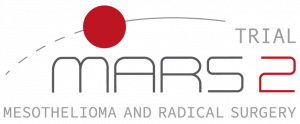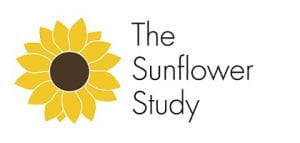Running the INSPIRE study in a pandemic
The INSPIRE study is a randomised controlled trial (with an internal pilot) comparing different types of breathing exercises performed with or without a device for a minimum of two weeks prior to surgery. The primary outcome will be the incidence of any post-operative pulmonary complication (PPC) occurring in-hospital (before discharge) or any hospital readmission for a PPC within 30 days from surgery. You can read more about the study at this link.
INSPIRE had only been recruiting for three months across two sites before the COVID-19 pandemic resulted in a temporary pause to recruitment and site set up. In August 2020, ethical approval was received to restart INSPIRE and to amend elements of the study to make it a more ‘COVID-friendly’ study for patients and research teams. Changes were made to many of the study patient and staff documents, training packages, the study database and data collection forms. Several INSPIRE measurements were classed as aerosol generating procedures, therefore a COVID-19 risk assessment was developed to improve safety for research staff participating in the study.
The aim was for the Bristol Trials Centre team to get the two existing sites restarted and recruiting quickly and to open four additional sites who were in different stages of ‘set up’. Only one of the existing sites was able to restart recruitment to the study in October 2020. The second site remains temporarily paused due to lack of capacity, as the pandemic has resulted in research staff being redeployed to work on the frontline or on COVID-19 research. Set up progress at the four additional sites has varied considerably over the last five months. None are currently in the position to begin recruiting.
It is hoped that breathing exercises, such as those being studied in INSPIRE, may help patients to recover following ICU treatment for COVID-19. You can read a blog article about this on the Biomed Central website.
This study is funded by the National Institute for Health Research (NIHR) Health Technology Assessment programme (HTA) Reference Number 16/140/07. The views expressed are those of the author(s) and not necessarily those of the NIHR or the Department of Health and Social Care.
Follow us on Twitter: @INSPIRE_Trial
MARS2 Trial reaches recruitment target
MARS 2 (Mesothelioma and Radical Surgery 2) is the first ever randomised clinical trial to compare the effect of treatment with chemotherapy and a lung-sparing operation, or treatment with chemotherapy alone (standard care), on the quality and length of life of patients diagnosed with mesothelioma. You can read more about mesothelioma here. The lung-sparing operation used in MARS 2 is currently offered by the NHS, but it is not known whether it provides the most effective treatment option for patients with mesothelioma. MARS 2 has been designed to provide evidence to address this important issue.
In March 2020, recruitment to MARS 2 had to be paused because of the COVID-19 pandemic. However, in May 2020 participating sites were slowly able to re-open (if local situations allowed). Despite these challenges, the original recruitment target for MARS 2 (328 participants) was reached in November 2020. This fantastic achievement is testament to the hard work and dedication of the MARS 2 research teams based in 26 hospitals across the UK. Follow up of the MARS 2 participants will now continue until July 2022.
MARS 2 is funded by the National Institute for Health Research (NIHR) Health Technology Assessment (HTA) programme (project number 15/188/31). The views expressed are those of the author(s) and not necessarily those of the NIHR or the Department of Health and Social Care.
Running virtual investigator meetings: An example from the Sunflower Study
Investigator meetings are a great way for site research teams to hear study updates whilst having the opportunity to share their experiences, challenges and solutions with each other.
The Sunflower study is a National Institute for Health Research funded, multi-centre, UK-wide, randomised controlled trial looking at whether a subgroup of patients undergoing gallbladder removal surgery should receive a specific type of MRI scan prior to their surgery. This study is managed by Maddie Clout from the Bristol Royal Infirmary hub. In 2020, it was not possible to arrange for site research teams in meet in person as normal. In light of this, the Sunflower Study opted to host a series of three virtual investigators meetings held via Zoom. The agenda for each meeting was the same, with the range of dates designed to allow as many sites as possible to attend. Some presentations were pre-recorded due to the availability of presenters.
The meeting agenda consisted of updates on various aspects of the study, including recruitment, trainee-led sub-studies and Patient and Public Involvement. There were also presentations from two site Principal Investigators, discussing how they had continued recruitment during COVID-19, and parallel breakout sessions. During these sessions, meetings attendees were spilt into pre-determined breakout rooms and each site was encouraged to provide a brief presentation looking at their local recruitment, challenges and successes.
Overall, research staff from 40 participating sites were able to attend across the three meeting dates. There were 10 breakout sessions, and seven of these were recorded. The discussions in these sessions were valuable, with site research teams sharing ideas on how to manage ongoing study challenges such as reduced research nurse capacity due to COVID-19, local radiology capacity and recruitment of acute admission patients. The study team aim to feed back some of the content of these breakout sessions to participating sites as a training and information resource.
Holding large virtual meetings can be challenging and require a high level of administrative work, however they can be successful and a high level of participant engagement is possible. Virtual meetings offer the opportunity to record proceedings, which can result in valuable material being shared more widely. They are also significantly cheaper to run than face-to-face meetings, which can cost around £9,000, and do not require attendees to travel. However, they do not allow for more casual networking and discussions, which is useful for relationship building and information sharing. The study team also felt that attendees were less engaged with pre-recorded presentations and therefore encouraged live presentations wherever possible.
If you are planning to hold a large virtual meeting, the Sunflower study team are happy to share their experiences. Please email sunflower-study@bristol.ac.uk
The Sunflower study is funded by the National Institute for Health Research (NIHR) Health Technology Assessment Programme (project number 16/142/04). The views expressed are those of the authors and not necessarily those of the NHS, the NIHR HTA or the Department of Health.



